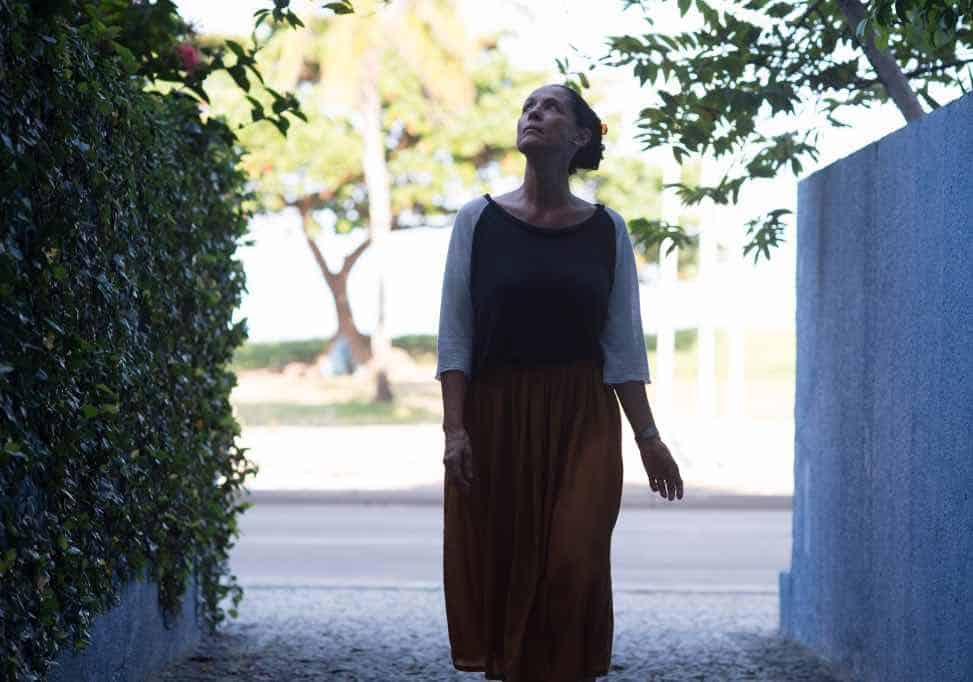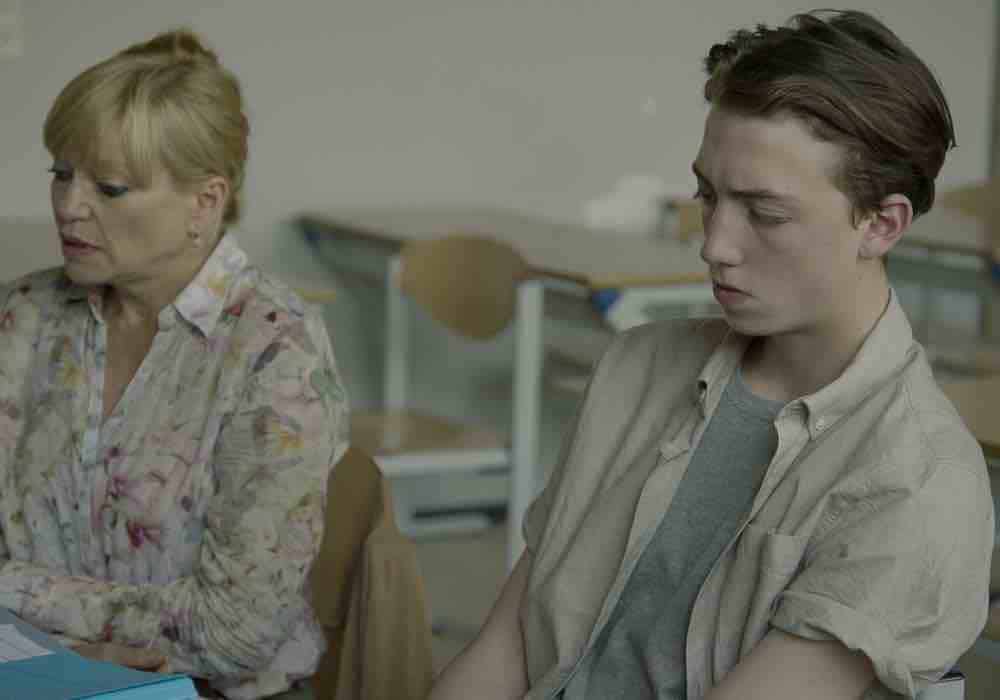Jesse Thompson explores sound, place, and gentrification in Aquarius and its parallels to the realities of real estate in Sydney, Australia.

Finding accommodation in Sydney is said to be hard, but really, it’s a lottery: one part consolation and one part luck. You might happen upon a private room in the city’s inner suburbs for less than $300 a week, but the oven won’t work, and the supply of hot water will run out before night falls. $290 gets you a freezing attic five kilometres from the city; $450 fetches three-square metres in a crumbling Newtown cottage, but the existing tenant needs you to walk his dog, and could you keep it quiet when his 14-month-old daughter is around? There are dire consequences when the mere task of being becomes a site of struggle. You don’t live: you exist.
What I didn’t expect to find, living in Sydney for three expensive months, was the extent to which the city is riven with gentrification. In Barangaroo, a luxury hotel will soon tower over space initially earmarked for public parkland, the high roller casino it encloses so close to the existing casino that, together, they will almost bookend the mouth of Sydney’s Darling Harbour. Barely a suburb away, social housing residents in Millers Point are being relocated so that their historic – and in some cases lifelong – dwellings may finally fall into wealthier hands. Evidence of the fallout that now mottles these streets’ gorgeous architecture, in banners of protest reading “The value of our community is worth more than just money”; “Millers Point is not for sale”; “Age in place”.
Read more: Kleber Mendonça Filho on the sounds of Aquarius >>
There’s a scene in the Brazilian film Aquarius that depicts bones being brashly dug up from a grave: these remains, their bounty of memory all but shed, are re-imagined as mere intrusions on prime real estate. When the film screened in Sydney Film Festival’s Official Competition, its director, Kleber Mendonça Filho, claimed the top prize, and at least one audience member recognised an uncanny parallel in its tale of an aging woman being flushed out of her apartment by greedy property developers.
Aquarius casts its story in the small perimeter of Recife, a large, tropical city on Brazil’s north-east coast, where the free-spirited Clara (played by a quaking Sonia Braga) enjoys a relatively subdued lifestyle. A widow whose three adult children have moved out of her breezy, beachside apartment, Clara passes time doing yoga, in the sea or on the hammock. An interview with a dim journalist early in the film suggests Clara is a figure whose tastes have purchase over the musical community; stacks of records line a whole wall of her apartment and populate the film with bursts of lively vintage rock and pop.
[clickToTweet tweet=”In AQUARIUS, Clara is the last woman standing, and her resistance is resolute.” quote=”Clara is the last woman standing, and her resistance is resolute.”]
A cadre of white-collar property developers soon turn up on Clara’s doorstep to offer her two million Brazilian Real (roughly $800,000AU) for the apartment, a figure, one of them tells her, “well over the market value for this kind of real estate.” Among them is Diego (Humberto Carrão), a young and unctuous property manager who has climbed into his position through a combination of nepotism – his boss is also his uncle – and enough privilege to study at an elite business school in the United States. Diego plans to empty Clara’s building, knock it all down, and erect a new condominium in its place (tactlessly called “The New Aquarius” to “preserve the memory of the previous building”, its namesake). Clara is the last woman standing, and her resistance is resolute, but Diego is well positioned to mount an escalating series of intrusions upon her freedom.
Mendonça Filho isn’t merely interested in creating a belaboured David versus Goliath battle between the comparatively rich and the moderately richer. He draws a constellation of characters into the property dispute, the implications of which ripple outwards as the dispute deepens. Among the voices imploring Clara to pack up and move on are her daughter, Ana Paula (Maeve Jinkings), and less pointedly, her two sons. Each is concerned about their mother’s welfare in the vacant building, but, it seems, rarely inclined to keep her company within it. Mendonça Filho weaves an incredibly rich portrait of Clara’s family life by showing it under duress. Clara’s words are barbed, and Braga inhabits her role with ferocity and aplomb, giving short shrift to the idea that her family, in Clara’s own words, are setting her up as “the crazy lady from Aquarius”.
Read more: Ira Sachs’ Little Men tracks the human drama in real estate >>
Mendonça Filho occasionally entertains this image himself. He doesn’t shy away from showing Clara’s privilege, often through her interactions with her maid, Ladjane. Ladjane is servile, poor, and Clara treats her with a briskness that frequently obscures their strong camaraderie; Mendonça Filho uses their relationship to illustrate a class chasm in which Clara’s plight pales by comparison. Take the scene depicting Ladjane’s birthday party, in which a blown-up photo of her son, whose death in a hit-and-run accident was ignored by local police, sits large and spectral in the background. The suggestion, though unspoken, is that the authorities don’t bother when it comes to the lower classes, so the portrait hangs an eerie reminder of this injustice made literal. The technique is bold if only because the retort is so obvious within critical spheres that uphold privilege and sympathy as mutually exclusive: why does Clara merit investment when the dirt-poor around her are so routinely ignored?
[clickToTweet tweet=”Why does Clara merit investment when the dirt-poor around her are so routinely ignored?” quote=”Why does Clara merit investment when the dirt-poor around her are so routinely ignored?”]
Yet the film favours imagery that highlights the artifice of spatial divisions between rich and poor. When Clara heads to the aforementioned party, with her nephew and his girlfriend in tow, she points out that Recife’s rich and poor districts are demarcated by a sewage pipe. Pina is for the affluent, Brasília Teimosa for the impoverished, their division marked by a mere line in the sand. Then, a spectacular crash zoom out wonderfully demonstrates the neat boundaries that contain these districts, as well as their paradoxical closeness. Brasília Teimosa fills the horizon while a glass-faced skyscraper, sitting closer in the frame, obscures its poverty. Quietly, the shot suggests that the invisible boundaries that contain the rich and the poor, policing where they may and may not comfortably exist, are a signature of insidious urban planning. The visual rhymes with Diego’s project to evacuate Clara from real estate beyond her means, suggesting these divisions are as strenuously upheld as they are arbitrary.
[clickToTweet tweet=”Each advancement in Clara’s property dispute is nothing less than an existential threat.” quote=”Each advancement in Clara’s property dispute is nothing less than an existential threat.”]
Aquarius depicts a simple reality felt by most struggling to live comfortably in Sydney: that your home is an expression of your rung in society’s hierarchy; that your real estate isn’t a choice, but a sentence. Place is never merely setting in the films of Kleber Mendonça Filho, but a battleground upon which inextricable issues of identity are formed, expressed and negotiated. The director explores the histories that these buildings and the objects within them carry or, when buildings are demolished and new ones erected, overwrite. By this reasoning, each advancement in Clara’s property dispute is nothing less than an existential threat. What comes under siege isn’t merely the right to live in a seaside apartment, but a suite of freedoms: the freedom to value memory over marketplace; the freedom to age in the care of your family and not the employees of a nursing home; the freedom to follow a walk of life not determined by your age or your salary.
One of the major ways the director defines these places is through sounds that are unique to their locations. In an interview with The Seventh Row’s Alex Heeney, Mendonça Filho spoke to the importance of keeping the sound in Aquarius diegetic, ensuring it emanated from a physical place, as though its source affects how the actors hear and respond to it. The director’s filmography of delightful oddities also speaks to the capacity of sound to both inform and, in many cases, drastically renovate the meaning of physical space, from sanctuaries to sanatoriums, domiciles to prisons. In one short, Electrodomestica, a mother’s household routine becomes a stress-inducing canon of domestic electrical sound; another, an eerie parable about a cursed lime-green record, shows the terrible misfortune effected on whoever lowers the needle to its grooves.
[clickToTweet tweet=”In AQUARIUS, sound takes its listeners hostage and brings them together depending on the context.” quote=”In Aquarius, sound takes its listeners hostage and brings them together depending on the contexts in which it’s deployed, and by whom. “]
In Aquarius, sound takes its listeners hostage and brings them together depending on the contexts in which it’s deployed, and by whom. In some scenes, it’s wielded as a kind of weapon as it intrudes upon personal space, overwriting physical and literal boundaries as it does so. When Diego convenes a drug- and sex-fuelled party right above Clara’s apartment, the party’s thumping dance music pounds, porously, into Clara’s home and her sanity. Elsewhere, musical choice become a test of character, like when Clara’s makes her nephew’s new girlfriend introduce herself to the family by selecting and playing one of her records to them. With Clara, the simple act of listening to music takes on the tenets of a binding social glue.
Aquarius opens with a series of vintage photographs of coastal Recife, pre-empting the questions of societal transition, change and gentrification that inform the film. A beachside prologue set in 1979 then takes us to the 70th birthday of Clara’s beloved aunt-in-law, for whom the sight of a particular heirloom triggers memories of a youth spent on the vanguard of the sexual revolution. A guest mentions Clara’s long battle with breast cancer, and then a long, yawning dissolve brings us to the present setting, an upbeat dance track thrumming alongside it.
[clickToTweet tweet=”Knock this shit down, in other words, and you do away with more than just pretty architecture.” quote=”Knock this shit down, in other words, and you do away with more than just pretty architecture.”]
The camera, ever interrogative, returns its gaze to that heirloom throughout the film, suggesting a deep residue of memory that invests it with meaning. The prologue is rich with detail but seemingly void of immediate significance within the narrative the movie then chronicles. The logic is that of a palimpsest: layer upon layer, new over old, overwriting but never quite forgetting what was. But the snaking movements of erasure are slow and sure, much as the streets of Millers Point are emptied and converted into Airbnb hotspots. The past not only informs but adds value to the present. Knock this shit down, in other words, and you do away with more than just pretty architecture.
Read more: Kleber Mendonça Filho on the sounds of Aquarius >>
Read more: Landscape and limbo in Fish Tank >>

